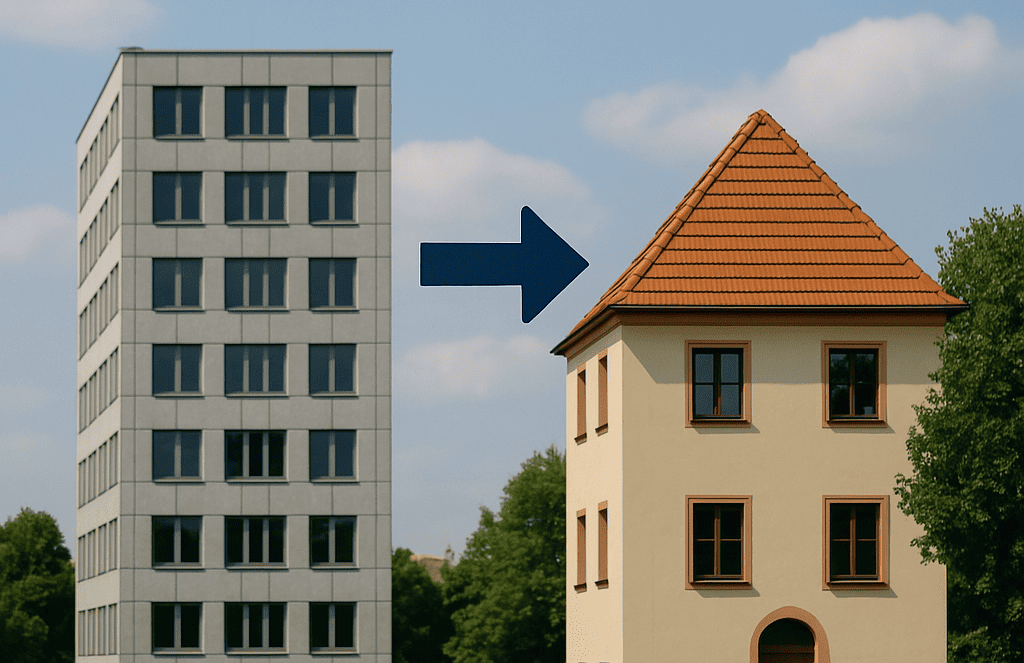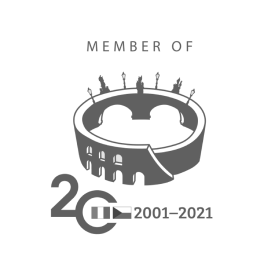
PRAGUE’S REAL ESTATE EVOLUTION: FROM OFFICES TO HOMES
As remote work becomes more prevalent and businesses downsize their office spaces, many older office buildings are being repurposed into residential units. This shift, already established in cities like London and New York, is now gaining traction in Prague, reshaping its urban landscape and addressing the growing demand for housing.
With nearly half of Prague’s office buildings considered outdated, conversions offer a practical solution to modernize properties while supporting sustainability goals. Developers are increasingly embracing this transformation, turning underutilized office spaces into homes that cater to shifting work and lifestyle trends.
This real estate shift marks a new chapter for Prague, aligning the city with global trends in adaptive reuse and urban development. By repurposing commercial buildings, Prague not only meets housing needs but also revitalizes its architecture and enhances the efficiency of its real estate market.
The Transformation of Prague’s Real Estate Market
A major transformation is reshaping Prague’s real estate market as developers and property owners face growing pressure to modernize office buildings. The push for environmental sustainability, alongside evolving corporate needs and the rise of remote work, is driving the conversion of office spaces into residential units.
According to Cushman & Wakefield, nearly 47 percent of Prague’s office buildings are outdated and require significant modernization. This need is reinforced by the European Union’s directive mandating climate neutrality for all buildings by 2050. Radka Novak of Cushman & Wakefield warns that buildings failing to adapt risk becoming obsolete and unrentable.
The Impact of Remote Work on the Office Market
The shift to hybrid work models, accelerated by the COVID-19 pandemic, has also significantly impacted the market. With more employees working remotely, businesses are reducing office footprints, leaving many properties underutilized. A survey by recruitment firm Devire found that remote work is a key priority for Czech workers, with 36 percent preferring three remote days per week. The second-most popular option was four remote days, reflecting a clear trend toward flexible work arrangements.
Developers are responding by repurposing office spaces into apartments. The Dům Radost project in Žižkov exemplifies this trend, with plans to convert the former trade union headquarters into 600 rental units. Other developers, such as YIT and J&T Real Estate, are considering similar initiatives, including the conversion of the Kuta Centrum complex and sections of the Žižkov Freight Station. The now-unused Žižkov Freight Station is set to partially transform into housing, reflecting the broader shift toward residential development.
International Examples of Office Conversions
While still emerging in Prague, this trend is well-established globally. In Madrid, over 300,000 square meters of office space have been repurposed into residential or hospitality units in the past four years. London has seen similar trends, with developers transforming outdated office buildings into modern apartments and mixed-use spaces. This shift helps optimize urban space while catering to evolving work and living patterns. In New York, adaptive reuse projects have converted obsolete office buildings into energy-efficient residential units, overcoming structural challenges through innovative design. These international examples highlight how office-to-residential conversions can provide sustainable housing solutions while breathing new life into underutilized properties.
Challenges in Converting Office Buildings
However, not all office buildings are suitable for conversion due to structural and financial constraints. Some properties have layouts that make transformation impractical, while others require extensive and costly modifications. Developers must carefully assess the feasibility of each project, balancing economic considerations with the increasing demand for residential spaces in Prague’s evolving real estate market.
As this trend continues to unfold, it is likely to reshape the city’s architectural landscape, offering new housing solutions while revitalizing underused office properties.
In conclusion, the transformation of office buildings into residential spaces is redefining Prague’s real estate landscape. Driven by remote work, sustainability goals, and evolving corporate needs, this trend offers a solution to both underutilized office spaces and the city’s housing demand. While challenges remain, successful conversions could breathe new life into outdated properties, contributing to a more dynamic and adaptable urban environment. As this shift continues, Prague is poised to follow in the footsteps of other global cities, embracing a more flexible and sustainable approach to urban development.
Sources: https://www.expats.cz




